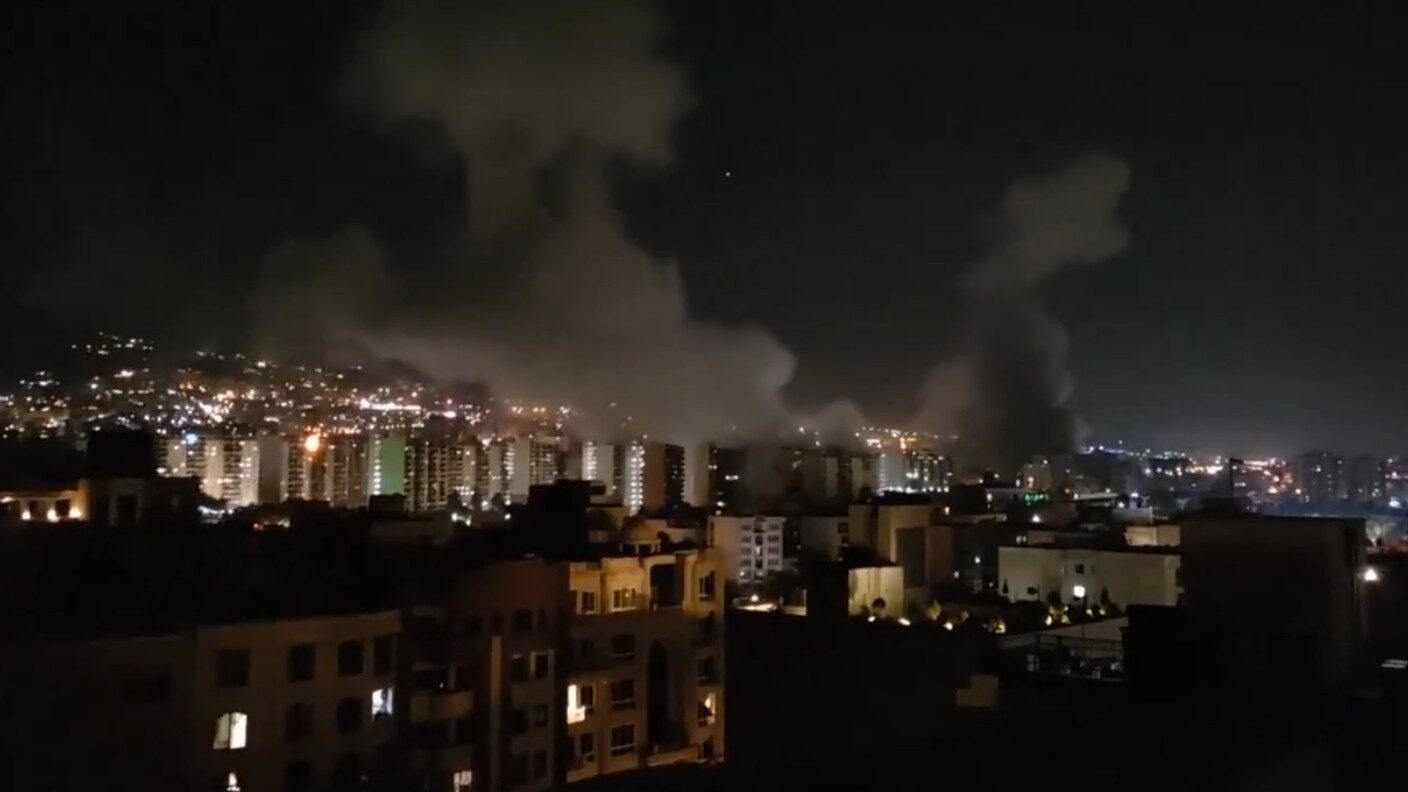‘A New Chapter of an Old War’: Inside Israel’s Calculated Blow Against Iran
Targeted assassinations, intelligence-led strikes, and bold messaging mark Israel’s response to what it called an imminent Iranian nuclear threat.
Iran was taken by surprise early Friday morning when Israel carried out a series of strikes on regime leaders, nuclear scientists, and key military and economic sites. The operation targeted nuclear facilities, military command centers, airports, and missile infrastructure in multiple regions of Iran. Israeli officials said it was timed to preempt what they described as an imminent strategic threat.
Speaking to The Media Line, MK Ram Ben Barak said that the Islamic Republic had plenty of chances to avoid this war. “We gave them time. So did the US. But Iran kept sprinting toward the bomb,” the former deputy Mossad chief said. “That left us with no choice but to hit back at their annihilation plan against Israel.”
You don’t wake up one morning and decide to hit a target. You prepare for this for months—supported by intelligence, surveillance, and timing.
The Mossad’s involvement was widely reported in Israeli media, and Ben Barak did not dispute it. “You don’t wake up one morning and decide to hit a target. You prepare for this for months—supported by intelligence, surveillance, and timing,” he said. He emphasized that had Israel waited longer, “it might have been too late, or too difficult to carry out at all.”
Avi Davidi, an expert in Iranian affairs at the Jerusalem Institute for Strategy and Security, told The Media Line that Iran’s internal response has focused on damage control. “They quickly replaced killed commanders, staged regime-supporting demonstrations, and emphasized that key infrastructure—like water, electricity, and gas—was untouched,” he said. “The government’s message is clear: everything is under control, and revenge is coming.”
This holiday season, give to:
Truth and understanding
The Media Line's intrepid correspondents are in Israel, Gaza, Lebanon, Syria and Pakistan providing first-person reporting.
They all said they cover it.
We see it.
We report with just one agenda: the truth.


They say Iran will finish the story that Israel began—and this time, there are no red lines.
Iranian messaging, according to Davidi, is calibrated for multiple audiences. “Outwardly, they’re promising retaliation and urging the UN to condemn Israel. Internally, they’re trying to keep people calm and routine uninterrupted,” he said. Still, he noted, “They say Iran will finish the story that Israel began—and this time, there are no red lines.”
Davidi believes the Israeli strikes could offer a rare opening for Iran’s opposition. “The Iranian people understand they are not the target of the Israeli attacks. The strikes hit nuclear facilities, missile sites, and IRGC personnel—not civilians,” he explained. “It might be an opportunity. The Iranian prince in exile is calling for protests, and we’re hearing more voices urging people to rise up.” Yet he stressed, “we have to wait and see whether the opposition inside Iran would seize this moment.”
Eyal Pinko, a senior researcher at the Begin-Sadat Center for Strategic Studies and a former navy intelligence officer, said Israeli surveillance had identified renewed movement around nuclear weaponization efforts. “We saw key scientists becoming active again—this was not routine,” he said during a security briefing hosted by the Jerusalem Press Club. “Israel had to act.”
Iran will activate its global terror network. We’ll see attempts to assassinate Israeli diplomats and businessmen in Europe, attacks on Jewish targets in Asia or Latin America. I advise Israelis abroad—don’t speak Hebrew on the street.
He warned that retaliation may not be limited to missiles. “Iran will activate its global terror network. We’ll see attempts to assassinate Israeli diplomats and businessmen in Europe, attacks on Jewish targets in Asia or Latin America. I advise Israelis abroad—don’t speak Hebrew on the street,” he said. He added that if Iranian nuclear scientists were eliminated, “the damage to their program could be far greater than just infrastructure. Human knowledge is not easily replaced.”
Maj. Gen. (res.) Yaakov Amidror, former Israeli national security adviser, said the strikes do not constitute a new war, but rather a continuation of the one that began on October 7, 2023. “Israel was attacked, initiated by the Iranians. We didn’t attack Iran first. They attacked us—twice,” he told The Media Line. “From the international legitimacy point of view, this time Israel is in a much better position.”
He argued that the conditions were ripe for a direct strike on Iran. “With Hamas degraded, Hezbollah pushed back, and the Houthis contained, the ring of fire has been significantly weakened,” he said. “That strategic shift made this possible.”
We had to reestablish deterrence, and that required bold, visible action.
Brig. Gen. (res.) Amir Avivi, founder of the Israel Defense and Security Forum, said Tehran had grown emboldened. “Iran was getting too confident. It was testing red lines with Hezbollah, arming militias across the region, and threatening from Syria,” he said. “We had to reestablish deterrence, and that required bold, visible action.” Still, he warned, “This is only the first step. We’re in a new chapter of an old war—and Iran is far from finished.”

